Matt Sailor’s Great Moments in Cinematic Drinking, on Hobart
Like all of my favorite nonfiction, Matt Sailor’s “Great Moments in Cinematic Drinking” column for Hobart balances the very specific—a deep dive into a particular cinematic drinking scene—with revelatory writing about the author’s own life. It’s Sailor’s ability to bounce back and forth between the two so effortlessly and without taking anything away from either side that makes these special: always interesting, always fun, and even when you know it’s coming, surprisingly touching.
Bojack Horseman is the best show about a cartoon horse that I saw last year. More than that, it’s one of the most consistently funny and affecting shows on television. If you don’t believe me, I’ll give you Bojack’s own mother, who kicked off season 2 with this devastatingly accurate motherly advice: “You were born broken, that’s your birthright. And now you can fill your life with projects. Your books and your movies and your little girlfriends, but it won’t make you whole. You’re BoJack Horseman. There’s no cure for that.”
This is a Barrelhouse adjacent thing and features two of our editors, Tom McAllister and Mike Ingram, talking and occasionally fighting about a different book, essay, or short story each week. These are two of my good friends, so for me it has the added value of feeling like I’m hanging around with two people I enjoy hanging around with, but I think I would love the podcast even if I didn’t know Mike and Tom. It’s fun and funny, with insightful discussion on books, writing, writers, and all things literary, with the occasional side trip discussion about raccoons, AWP, NaNoWriMo, fan fiction, and whatever else is on their minds at any given time.
Cult of Loretta by Kevin Maloney
I’ll step out of the way and let Aaron Burch describe Kevin Maloney’s bonkers-good, super-entertaining, slyly clever, totally singular novel: “I haven’t read a book this great, this funny, this original, this emotional, this bonkers in quite some time. It’s a little like Bukowski and Sam Lipsyte and the drug scene in Beavis and Butthead Do America all smashed together, but also completely and totally Kevin Maloney.”
This was part of the Barrelhouse online holiday issue last year, where we asked a bunch of writers to reinterpret a holiday favorite, and it’s written by a good friend, but it’s also my favorite thing we published all last year. Yippee-ki-yay, motherfucker, it’s a hell of a lot of fun to ride along with an aging and homicidal John McClane of Die Hard as he delivers Meals on Wheels, and the occasional, you know, maybe murder, with his adoring nephew.
The Golden State Warriors
I played basketball until I retired in my junior year of college to focus on drinking beer and sleeping, and I played regularly after that until my achilles tendons decided to retire around the age of 35. In seventh grade, I used to prepare for every televised Celtics game by making cornbread in honor of my favorite player, Cedric “Cornbread” Maxwell. So I’ve been watching the NBA pretty closely for a pretty long time, and I’ve never seen anything like Steph Curry and the Golden State Warriors from last year. That is, until this year, when they remain, as of this writing, an NBA record undefeated 23-0 (Editor’s note: they’re now 25-1). Curry is incandescent. I don’t think I’ve ever seen anybody play like he’s playing right now—he’s a danger to score literally the minute he crosses half-court. He’s built up a series of fakes and moves that, coupled with his ridiculous handle and unprecedented range, make him pretty much impossible to stop. If I didn’t have an understanding for how hard he works, I might think that the most logical explanation for his game is that he sold his soul down at the crossroads. If you like basketball even a little and you don’t love watching the Warriors right now, I don’t understand you.
The LCD Soundsystem episode of You’re the Worst
The first season of You’re the Worst was basically about a budding relationship between two attractive, funny assholes who meet while stealing presents at a wedding. Kind of like Seinfeld, but even worse people who had more sex, drank more, and did way more drugs. There was no reason to expect anything different from the second season until the show revealed that the female lead, Gretchen, had been retreating to her car at night to cry. From there, the show built to what has been called the most honest portrayal of clinical depression in the history of television. With the episode called “LCD Soundsystem,” the show kicked into Louie territory with a one-off that followed a pair of hip neighbors, Rob and Lexi, who Gretchen is spying on, secretly thinking that their “hipster grown-up” life might be what she needs to fill the hole inside. Of course, things don’t work out like that in real life or on television, but it’s the show’s portrayal of Rob and Lexi’s faltering relationship, and especially Rob’s stunted resentment at what he thinks he’s given up (pizza, condoms, hanging out at the bar) that took You’re the Worst into rare sitcom territory.
I had the good fortune to read this book in manuscript format and it has stuck in my craw ever since. It’s part mystery, part character study, part meditation on our creepy Internet culture, all beautifully and tautly written.
Jessica Piazza’s Poetry Has Value
In 2015, poet Jessica Piazza decided to only send her work out to paying markets, and to record the results on her blog Poetry Has Value. The results have been illuminating, interesting, sometimes depressing. What I love about the project is that Jess has used the opportunity to engage with the idea of art and value in a number of different ways, including her own blog posts, posts about paying markets, and interviews with editors and other writers. She’s become an essential voice in this area and I look to her to be a reasonable and passionate voice whenever the submission fee discussion flares up, as it always does.
Fargo
Fargo was good last season, but I thought it carried the legacy of Fargo the movie around like a caveman wearing a buffalo carcass—it kind of worked, but it looked difficult, heavy, more a burden than anything. This season the show freed itself of that burden by bouncing back to the late 70s to focus on “the Souix Falls massacre” that had been alluded to in season 1. And wow, did it shed that burden. The reborn / rebooted show is visually stunning, amazingly acted, and directed in a way that’s increasingly reminiscent of Tarantino at his most fun and gleeful. I could name at least six actors who deserve Emmies, from leads Patrick Wilson and Kirsten Dunst, to supporting actors Ted Danson and Jean Smart, right on through scene stealing role players, Nick Offerman and Bokeem Woodbine. All that and UFOs to boot!

Dave Housley is the author of three (yes, three) short story collections. The most recent, If I Knew The Way, I Would Take You Home, was published in January by Dzanc Books. Dave is also one of the founding editors of the mightily awesome Barrelhouse magazine, and a co-founder of the Conversations and Connections writer’s conference. And since it’s too late for us to grow up and be him, we’ll settle for publishing his story “Lawn Man” next month. Stay tuned.









































































